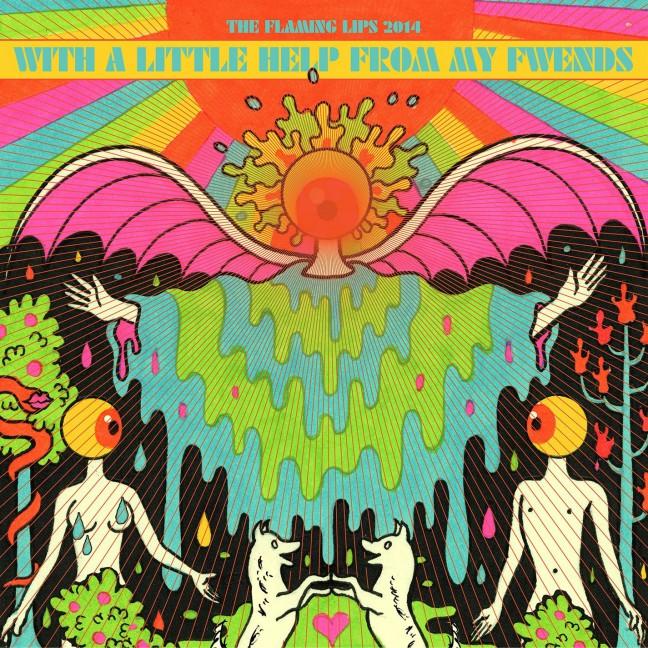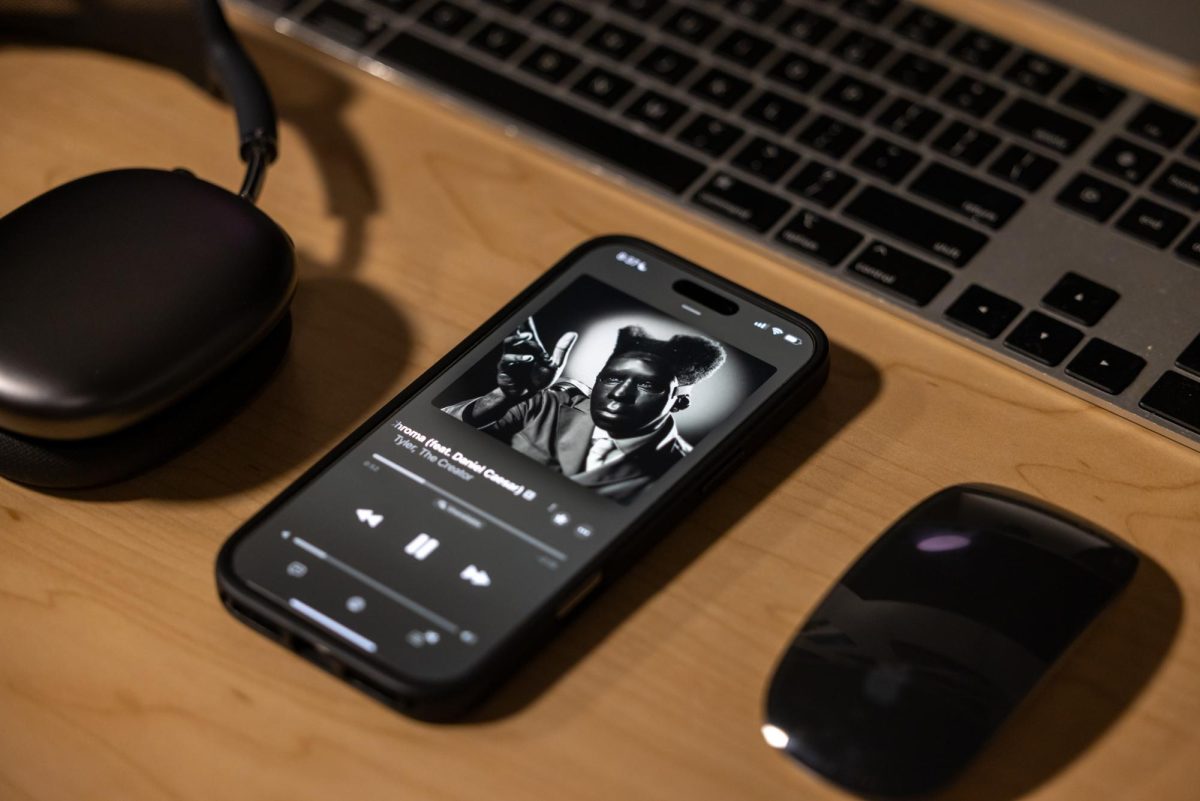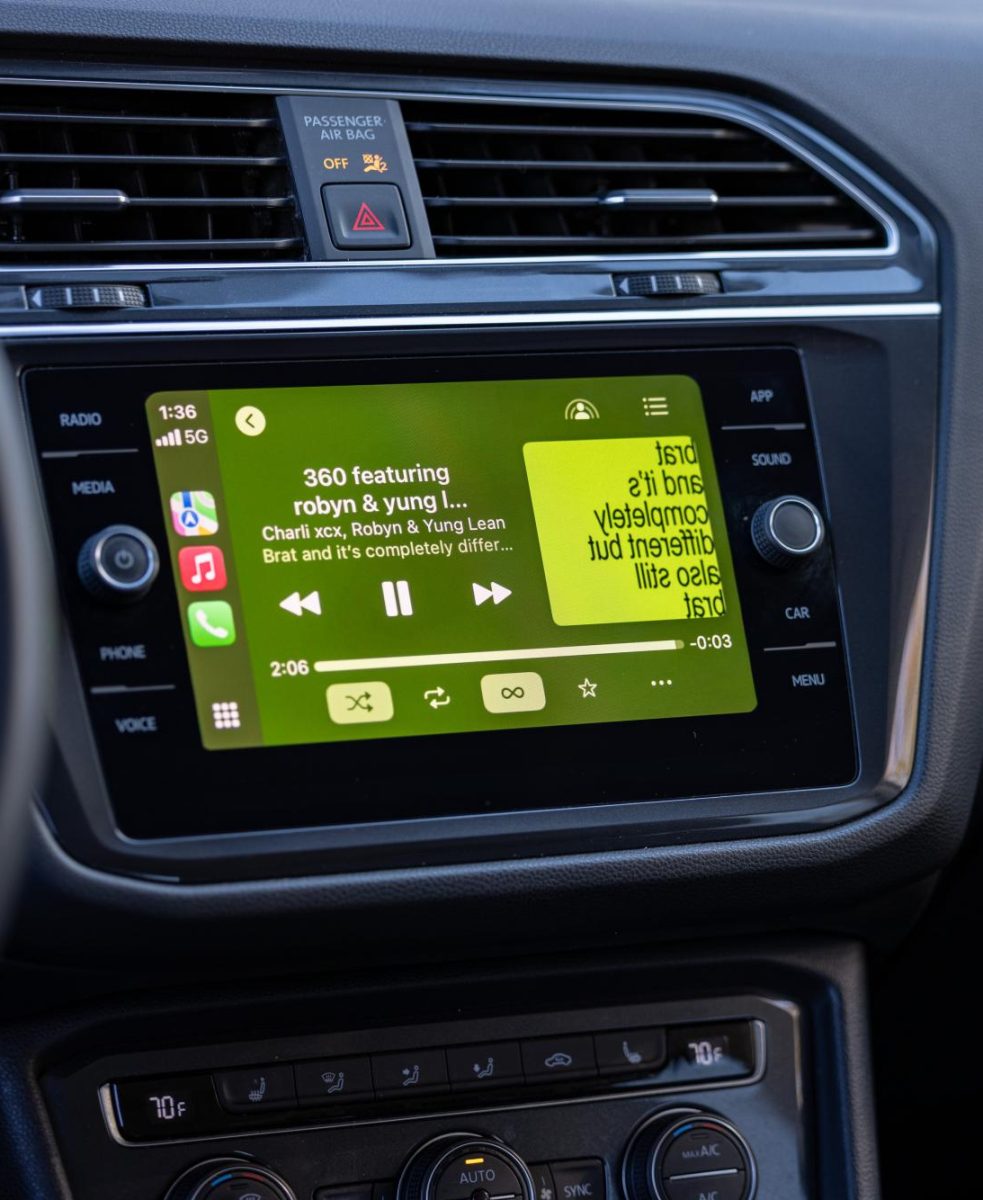In a recent interview with NPR, The Flaming Lips frontman Wayne Coyne said of The Beatles’ Sgt. Pepper’s Lonely Hearts Club Band, “it’s in the realm of the gods.” Curiosity led Coyne and his bandmates to produce With a Little Help From My Fwends, a front-to-back cover of The Beatles’ experimental album. The project is a new age, abstract interpretation of an already psychedelic, groundbreaking album that at times does more than is necessary to distance itself from its worshiped predecessor.
This isn’t the first time The Flaming Lips have played with “fwends:” The band’s 2012 album, The Flaming Lips and Heady Fwends, saw guest spots from a wide range of artists like Ke$ha, Bon Iver, Yoko Ono and Chris Martin from Coldplay. But on With a Little Help, the “fwend circle” is more confined to every psych rock band you’ve never heard of (Oh, you’re not familiar with Stardeath and White Dwarfs?). It’s clear that this is album was intended to follow a more succinct theme that sticks to The Flaming Lips’ trippy, conceptual sound.
The album gets its biggest guest appearance from pop icon Miley Cyrus, singing on “Lucy in the Sky with Diamonds” and “A Day In The Life.” The thing about Cyrus that some people have since forgotten is she still has a remarkably beautiful voice. Stripped down, absent of Auto-Tune and cushy pop beats, Miley’s voice is raw and mesmerizing when paired with the dream/hallucination-inspired feel of “A Day In The Life.” On the other hand, “Lucy in the Sky with Diamonds” is a song that squanders its potential with an overly climactic chorus that lacks the punch it promises with a chaotic build-up. But even if the song doesn’t live up to expectations, Cyrus’ contribution still shimmers.
When an artist takes on covering a work of art universally admired in music history, they inherently run the risk of taking it the wrong direction. Coyne is one of few who has the creative ambition required to tackle a Sgt. Pepper’s cover and develop it into something new without crashing into the ground. Sgt. Pepper’s was revered for its experimental production methods, namely recording all the sections on a four-track tape recorder. Similarly, With a Little Help uses modern day production techniques to cleverly juxtapose the technological advances of today with the limits of yesterday.
On With A Little Help From My Friends, the memorable lyric “What would you do / If I sang out of tune?” is very obviously Auto-Tuned, as are most of the rest of the song’s lyrics. In a sense, it’s a tip of the cap to The Beatles’ bravery in the studio, as they were partly defined by the raw imperfections included in their many tracks. Beyond Auto-Tune, however, is “When I’m Sixty-Four,” a track dripping with pulsing synths that’s best listened to with headphones. A Daft Punk-esque robot voice croons Paul McCartney’s words in your left ear, while an organic-sounding Coyne mirrors the lyrics in your right.
A certain continuity feels absent in With A Little Help From My Fwends – the same continuity that bound the assortment of abstract tracks into what we know today as Sgt. Pepper’s. Without it, the album is more a collection of individual covers than anything else. While Coyne and the Flaming Lips emulate much of Sgt. Pepper’s and spin it as their own psychedelic sound, their project as a whole lacks the cohesiveness that made Sgt. Pepper’s what it is.














